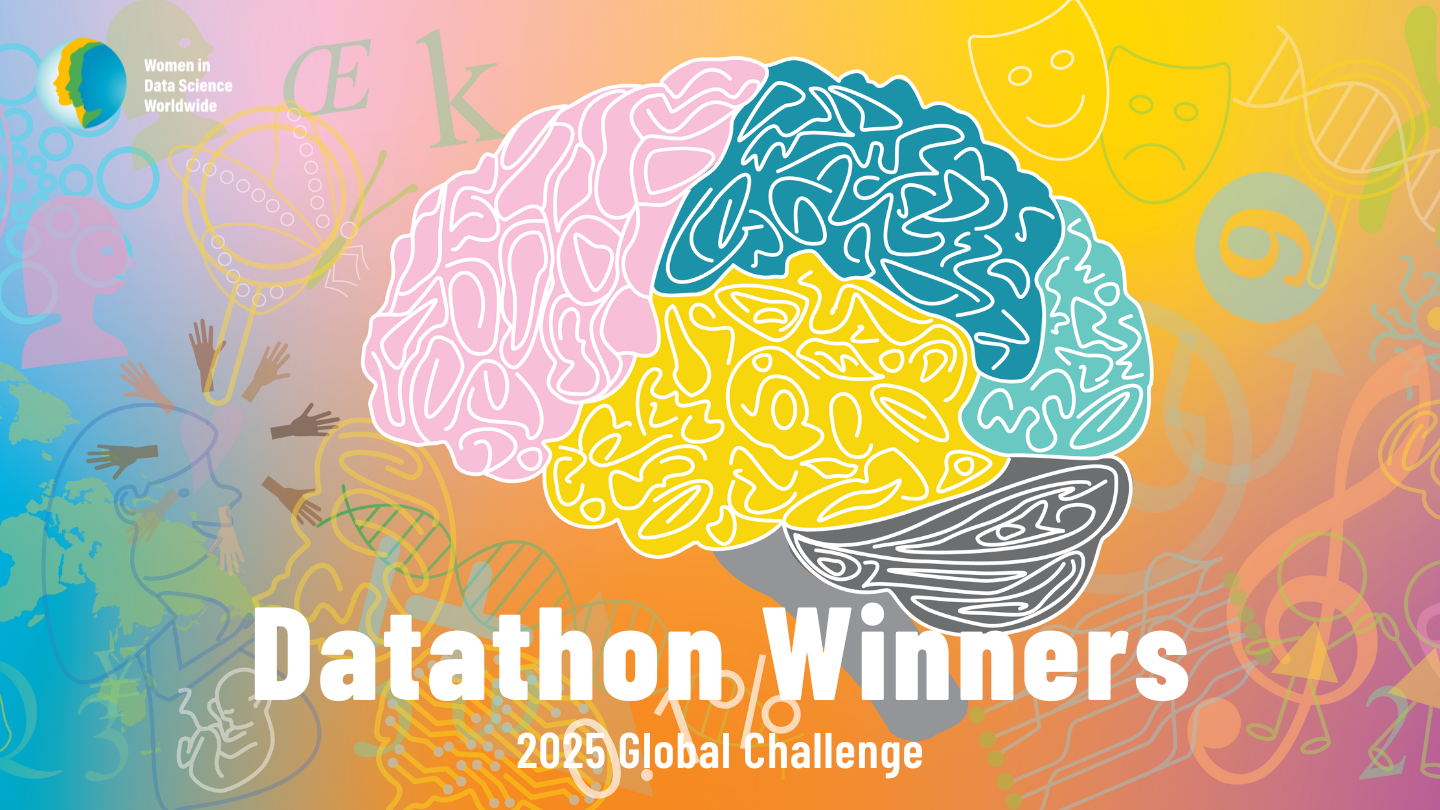Congratulations WiDS Datathon winners and all global participants!
Participants analyzed fMRI data to “diagnose” adolescent ADHD. The majority of participants were women, further promoting inclusivity in the field of data science.
Hear the winners discuss their results and findings in an online panel discussion on Wednesday, May 28th. Watch the recording.
Meet the winners:
1st place: Team Jenna
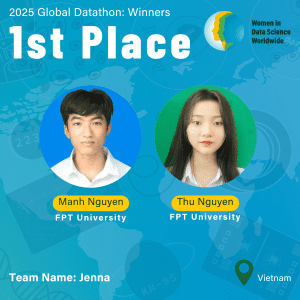
How did your team meet?
We are college friends.
Why did your team join the datathon?
We joined the datathon to challenge ourselves with a practical medical prediction task, mainly out of curiosity about fMRI data.
What was your team’s biggest learning or insight participating in the challenge?
Our biggest takeaway was the knowledge of multidimensional functional MRI connectivity data – key to improving the prediction performance for the Sex_F outcome.
2nd place: Team11
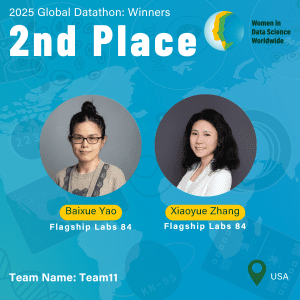
How did your team meet?
We met at our previous common work place.
What was your team’s biggest learning or insight participating in the challenge?
Ensemble from different models and subsets of data helps improve validation performance.
3rd place: Team abcd
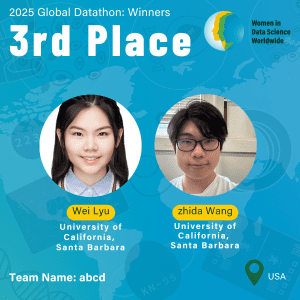
How did your team meet?
We are classmates in the same college. Our team was introduced by our excellent professor, Prof. Tang, who encouraged us to work together.
What was your biggest learning or insight participating in the challenge?
The biggest lesson we learned was the value of teamwork and the importance of recognizing everyone’s contributions.
4th Place: Team Data Raptors
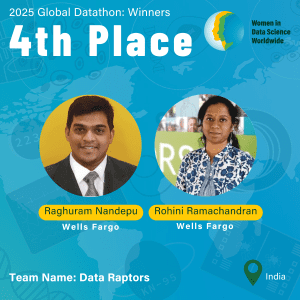
Why did you join the datathon?
We joined the datathon to challenge ourselves on real-world data and contribute to an impactful cause.
What was your team’s biggest learning or insight participating in the challenge?
Our biggest insight was realizing the effectiveness of ensemble learning combined with targeted dimensionality reduction and threshold tuning.
5th Place: Team Fantasticians
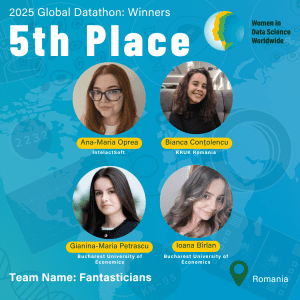
How did your team meet?
We’re four girls who met during our undergraduate statistics studies, 6 years ago and have stayed connected since, through a shared passion for data science.
What was your biggest learning or insight participating in the challenge?
Our biggest insight was that carefully curating features and using them in a well-calibrated ensemble – mattered far more than stacking complex models, and that resilience, teamwork, and the persistence to keep refining our approach were just as important as technical skill in tackling real-world data challenges.
Top students: Team KLE_DataStormers
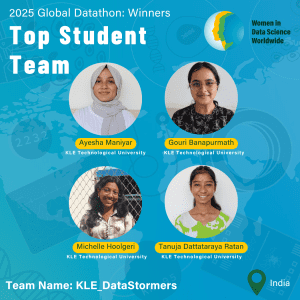
Why did your team join the datathon?
The WiDS Datathon challenge, introduced by our university as part of the Exploratory Data Analysis course curriculum, sparked our interest as data science enthusiasts and motivated us to take on the challenge.
What was your team’s biggest learning or insight participating in the challenge?
Our team’s biggest learning was the critical role of data preprocessing, feature engineering, and iterative experimentation in improving model performance, while the WiDS Datathon workshops provided valuable insights, and taking on this challenge significantly enhanced our domain knowledge.
2nd Top students: Team OverfittingMasters – PSUT
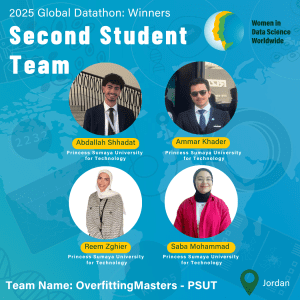
How did your team meet?
We are colleagues at PSUT, we met at a Data engineering course and shared our passion for the field.
Why did your team join the datathon?
To experience how real world scenarios are, it was an interesting opportunity to apply what we learned and learn something new with every submission made.
Top High School Team: Eesha V
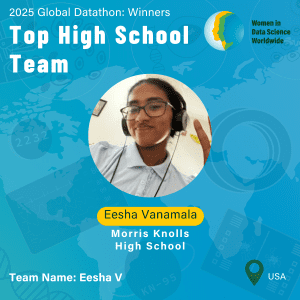
Why did you join the datathon?
I joined the datathon because I am incredibly interested in neuroscience, and I wanted to be able to practice my machine learning skills on a real-world problem!
What was your biggest learning or insight participating in the challenge?
My biggest insight was to continuously test various solutions, and to treat each mistake like an opportunity to grow!
Top First-Timer in the WiDS Datathon: Team Quinn
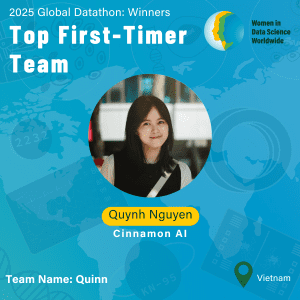
Why did you join the datathon?
I joined the datathon to take my first step into a like-minded data community, learn from this inspiring network, and challenge myself with real-world problems.
What was your biggest learning or insight participating in the challenge?
Specifically, I gained insights into handling imbalanced data, but more broadly, I learned the value of persistence in tackling data science problems and the joy of unexpected discoveries during exploration.


